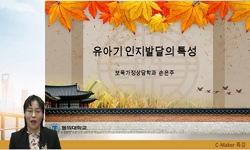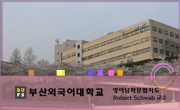본 연구는 저빈도 반복경두개자기자극(rTMS)이 만성 뇌졸중 환자의 인지기능에 미치는 영향을 알아보기 위해 실시 하였다. MMSE-K와 한국어판 BCRS-K를 통해서 선별된 만성 뇌졸중 환자 30명을 대...
http://chineseinput.net/에서 pinyin(병음)방식으로 중국어를 변환할 수 있습니다.
변환된 중국어를 복사하여 사용하시면 됩니다.
- 中文 을 입력하시려면 zhongwen을 입력하시고 space를누르시면됩니다.
- 北京 을 입력하시려면 beijing을 입력하시고 space를 누르시면 됩니다.
https://www.riss.kr/link?id=A103307600
- 저자
- 발행기관
- 학술지명
- 권호사항
-
발행연도
2014
-
작성언어
Korean
- 주제어
-
등재정보
KCI등재
-
자료형태
학술저널
-
수록면
7239-7247(9쪽)
-
KCI 피인용횟수
0
- DOI식별코드
- 제공처
- 소장기관
-
0
상세조회 -
0
다운로드
부가정보
국문 초록 (Abstract)
본 연구는 저빈도 반복경두개자기자극(rTMS)이 만성 뇌졸중 환자의 인지기능에 미치는 영향을 알아보기 위해 실시 하였다. MMSE-K와 한국어판 BCRS-K를 통해서 선별된 만성 뇌졸중 환자 30명을 대상으로 3개의 군으로 무작위로 나누었 다. 실험군 Ⅰ(n=10)은 소리만 동일시간 적용하게 하였고, 실험군 Ⅱ(n=10)은 손상 측에 1 Hz rTMS를, 실험군 Ⅲ(n=10)은 손상반대측에 1 Hz rTMS를 적용하여 주 5회, 1일 20분, 2주간 중재하였다. 인지기능의 변화를 알아보기 위해서 중재 전, 1주 후, 2주 후, 3개월 후 시점에서 CERAD-K 점수를 측정하였다. 연구 결과 즉각 기억단어는 실험군 Ⅰ에 비교하여 실험군 Ⅱ와 실험군 Ⅲ에서 2주 후와 3개월 후에 통계학적으로 유의한 차이를 보였고(p<.05), 재인 기억단어에서는 실험군 Ⅲ에서 2주 후와 3개월 후에 통계학적으로 유의한 차이가 나타났다(p<.05). 지연 기억단어는 실험군 Ⅰ에 비해 실험군 Ⅲ에서 3개월 후에 통계학적으로 유의한 차이를 보였다(p<.05). 따라서 본 연구결과를 통해서 뇌졸중 환자에서 저빈도 rTMS의 적용이 인지재활에 긍정적인 영향을 줄 수 있을 것으로 생각된다.
다국어 초록 (Multilingual Abstract)
This study repeated low-frequency transcranial magnetic stimulation (rTMS) to evaluate the effects on cognitive function in chronic stroke patients. Among the chronic stroke patients, 30 patients selected by MMSE-K and BCRS-K were divided randomly int...
This study repeated low-frequency transcranial magnetic stimulation (rTMS) to evaluate the effects on cognitive function in chronic stroke patients. Among the chronic stroke patients, 30 patients selected by MMSE-K and BCRS-K were divided randomly into 3 groups. Group I (n=10) had only sound applied, group II (n=10) were applied 1 Hz rTMS on the damaged side and group Ⅲ (n=10) were applied to 1 Hz rTMS on the opposite side for total 2 weeks, 20 minutes per a day, five times per a week. To examine the change in cognitive function, CREAD-K scores were measured before, 1 week, 2 weeks, and then 3 months after the intervention. The CREAD-K scores were measured before and 1 week, 2 weeks and 3 months after the interventions. The immediate recall memory showed a significant difference after 2 weeks and 3 months in groups Ⅱ and Ⅲ (p<.05), The recognition memory showed a significant difference after 2 weeks and 3 months in group Ⅲ (p<.05). The delayed recall memory showed significant differences after 3 months in group Ⅲ than in group Ⅰ (p<.05). Therefore, the application of low-frequency rTMS has a positive influence on the cognitive rehabilitation of chronic stroke patients.
참고문헌 (Reference)
1 유지인, "한국어판 Brief Cognitive Rating Scale의 타당도" 인제대학교 대학원 2010
2 정용설, "고빈도 반복 경두개자기자극에 의한 운동 및 감각피질의 흥분도 변화" 경희대학교 대학원 2006
3 최지욱, "경두개 자기자극술의 실제" 대한생물치료정신의학회 11 (11): 5-11, 2005
4 Rothwell, J. C., "“Magnetic stimulation : motor evoked potentials”, The International Federation of Clinical Neuro- physiology" 52 : 97-103, 1995
5 Siebner, H. R., "Transcranial magnetic stimulation: new insights into representational cortical plasticity" 148 (148): 1-16, 2003
6 Waldowski, K, "Transcranial magnetic stimulation in the therapy of selected post-stroke cognitive deficits: aphasia and visuospatial hemineglect" 43 (43): 460-469, 2009
7 Tassinari, C. A., "Transcranial magnetic stimulation and epilepsy" 5 : 777-798, 2003
8 Naeser, Margaret. A., "Transcranial magnetic stimulation and aphasia rehabilitation" 93 (93): 26-34, 2012
9 Narasimhalu, K., "The prognostic effects of poststroke cognitive impairment no dementia and domain-specific cognitive impairments in nondisabled ischemic stroke patients" 42 (42): 883-888, 2011
10 Jong In Woo, "The Korean version of CERAD neuropsychlogical assessment battery" Seoul University publishing department 2002
1 유지인, "한국어판 Brief Cognitive Rating Scale의 타당도" 인제대학교 대학원 2010
2 정용설, "고빈도 반복 경두개자기자극에 의한 운동 및 감각피질의 흥분도 변화" 경희대학교 대학원 2006
3 최지욱, "경두개 자기자극술의 실제" 대한생물치료정신의학회 11 (11): 5-11, 2005
4 Rothwell, J. C., "“Magnetic stimulation : motor evoked potentials”, The International Federation of Clinical Neuro- physiology" 52 : 97-103, 1995
5 Siebner, H. R., "Transcranial magnetic stimulation: new insights into representational cortical plasticity" 148 (148): 1-16, 2003
6 Waldowski, K, "Transcranial magnetic stimulation in the therapy of selected post-stroke cognitive deficits: aphasia and visuospatial hemineglect" 43 (43): 460-469, 2009
7 Tassinari, C. A., "Transcranial magnetic stimulation and epilepsy" 5 : 777-798, 2003
8 Naeser, Margaret. A., "Transcranial magnetic stimulation and aphasia rehabilitation" 93 (93): 26-34, 2012
9 Narasimhalu, K., "The prognostic effects of poststroke cognitive impairment no dementia and domain-specific cognitive impairments in nondisabled ischemic stroke patients" 42 (42): 883-888, 2011
10 Jong In Woo, "The Korean version of CERAD neuropsychlogical assessment battery" Seoul University publishing department 2002
11 Jalinous, R., "Technical and practical aspects of magnetic nerve stimulation" 8 (8): 10-25, 1991
12 Pascual-Leone, A., "Responses to repetitive transcranial magnetic stimulation of the human motor cortex" 117 (117): 847-858, 1994
13 Jung Mo Lee, "Research articles : problems of the conceptual foundations in psychology (1) : the implications of cognitive psychology on the theory of science in psychology" 13 (13): 21-60, 1994
14 Wheaton, L. A., "Reliability of TMS motor evoked potentials in quadriceps of subjects with chronic hemiparesis after stroke" 276 (276): 115-117, 2009
15 Jin Ho Kim, "Rehabilitation Medicine" Koonja publishing company 389-391, 2003
16 Benedetti, F., "Pain threshold and tolerance in Alzheimer’s disease" 80 (80): 377-382, 1999
17 Trombly, C. A., "Occupational Therapy for Dysfunctions" Baltimore, William & Wilkins 1989
18 Webster, B. R., "Noninvasive brain stimulation in stroke rehabilitation" 3 (3): 474-481, 2006
19 George, M. S., "Mechanisms and the current state of transcranial magnetic stimulation" 8 (8): 496-514, 2003
20 George, M. S., "Mechanisms and state of the art of transcranial magnetic stimulation" 18 (18): 170-181, 2002
21 Young Chul Kwon, "Korean Version of Mini-Mental State Examination (MMSE-K) part1; development of the test for the elderly" 28 (28): 125-135, 1989
22 Wheately, C. J, "Evaluation and treatment of cognitive dysfunction”, Occupational therapy practice skills of physical dysfunction" Mosby 241-252, 1995
23 Chen, R., "Depression of motor cortex excitability by low-frequency transcranial magnetic stimulation" 48 (48): 1398-1403, 1997
24 Sisson, R. A., "Cognitive status as a predictor of right hemisphere stroke outcomes" 27 (27): 152-156, 1995
25 Rektorova, I., "Cognitive functioning after repetitive transcranial magnetic stimulation in patients with cerebrovascular disease without dementia: a pilot study of seven patients" 15 (15): 157-161, 2005
26 Guse, B., "Cognitive effects of high-frequency repetitive transcranial magnetic stimulation : a systematic review" 117 (117): 105-122, 2010
27 Martin, M. W., "Cognition" Harcourt Brace Publishers 1995
28 Summers, J. J., "Bilateral and unilateral movement training on upper limb function in chronic stroke patients: A TMS study" 252 (252): 76-82, 2007
29 Sabari, J. S., "Assessment in Occupational Therapy and Physical therapy" W. B. Saunders Company 249-271, 1997
30 Statistics Korea, "Annual report on the causes of death statistics" 2012
31 Seong Ran Lee, "A study on relationship between activities of daily living and cognitive score in stroke patients" Daegu University 2003
32 Fang, Y., "A study on additional early physiotherapy after stroke and factors affecting functional recovery" 17 (17): 608-617, 2003
33 Mansur, C. G., "A sham stimulation- controlled trial of rTMS of the unaffected hemisphere in stroke patients" 64 : 1802-1804, 2005
동일학술지(권/호) 다른 논문
-
일개 광역시 도시 여성노인의 건강관련 삶의 질과 이에 미치는 요인
- 한국산학기술학회
- 나윤주(Na, Yoon Joo)
- 2014
- KCI등재
-
일부 치위생과 학생의 자기효능감과 진로태도성숙간의 관련성
- 한국산학기술학회
- 정은경(Jung, Eun-Kyung)
- 2014
- KCI등재
-
전화상담과 문자메시지 제공이 허혈성 심질환자의 금연에 미치는 효과
- 한국산학기술학회
- 김은심(Kim, Eun-Shim)
- 2014
- KCI등재
-
편마비 환자의 후방보행훈련이 보행능력과 족저압에 미치는 영향
- 한국산학기술학회
- 이병훈(Lee, Byeong-Hoon)
- 2014
- KCI등재
분석정보
인용정보 인용지수 설명보기
학술지 이력
| 연월일 | 이력구분 | 이력상세 | 등재구분 |
|---|---|---|---|
| 2026 | 평가예정 | 재인증평가 신청대상 (재인증) | |
| 2020-01-01 | 평가 | 등재학술지 유지 (재인증) |  |
| 2017-07-01 | 평가 | 등재후보로 하락(현장점검) (기타) |  |
| 2017-07-01 | 평가 | 등재학술지 선정 (계속평가) |  |
| 2015-01-01 | 평가 | 등재학술지 유지 (등재유지) |  |
| 2011-01-01 | 평가 | 등재학술지 유지 (등재유지) |  |
| 2008-01-01 | 평가 | 등재학술지 선정 (등재후보2차) |  |
| 2007-08-28 | 학술지등록 | 한글명 : 한국산학기술학회논문지외국어명 : Journal of Korea Academia-Industrial cooperation Society |  |
| 2007-07-06 | 학회명변경 | 영문명 : The Korean Academic Inderstrial Society -> The Korea Academia-Industrial cooperation Society |  |
| 2007-01-01 | 평가 | 등재후보 1차 PASS (등재후보1차) |  |
| 2005-01-01 | 평가 | 등재후보학술지 선정 (신규평가) |  |
학술지 인용정보
| 기준연도 | WOS-KCI 통합IF(2년) | KCIF(2년) | KCIF(3년) |
|---|---|---|---|
| 2016 | 0.68 | 0.68 | 0.68 |
| KCIF(4년) | KCIF(5년) | 중심성지수(3년) | 즉시성지수 |
| 0.66 | 0.61 | 0.842 | 0.23 |




 ScienceON
ScienceON DBpia
DBpia





